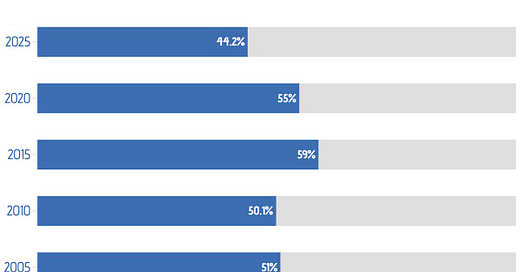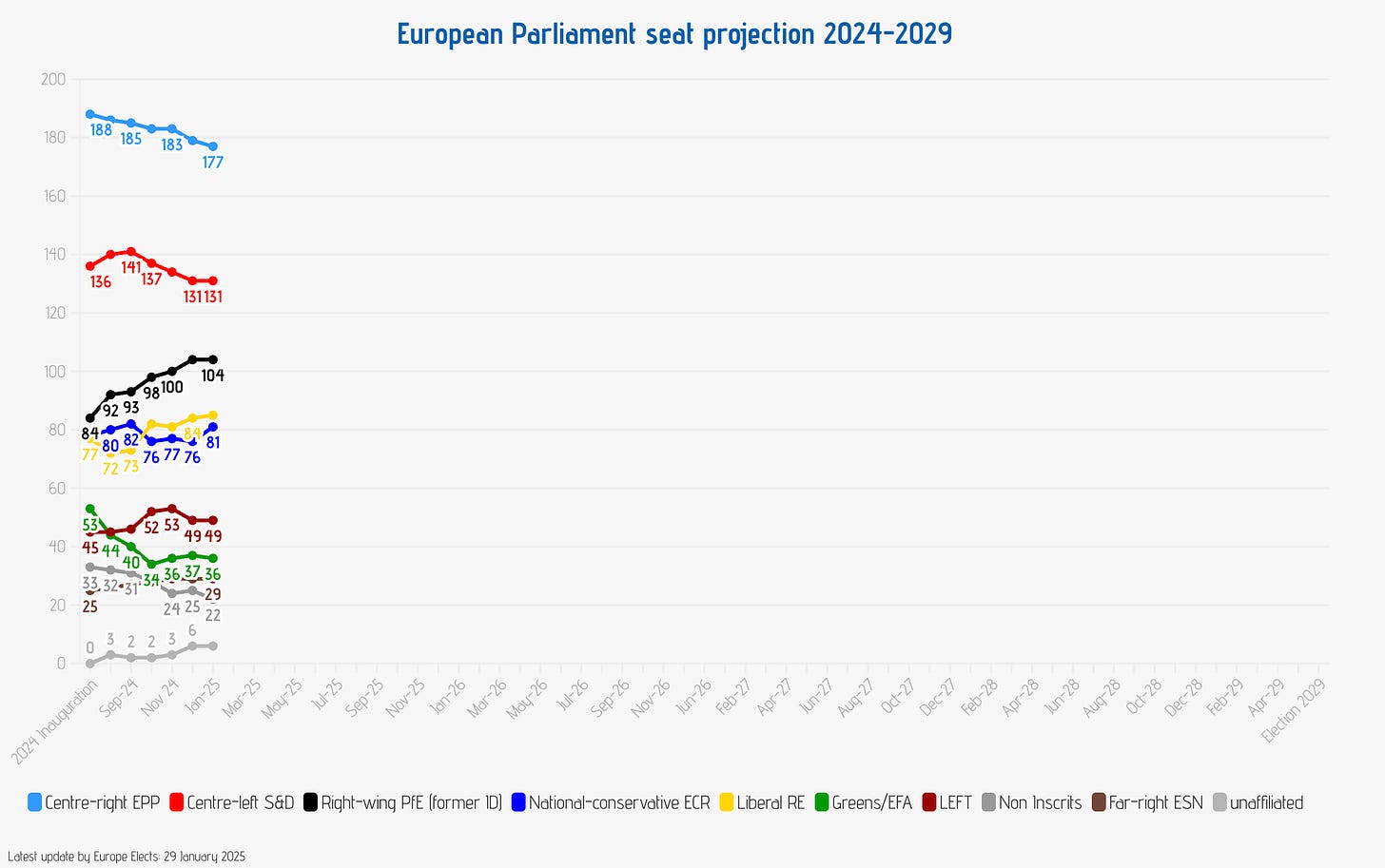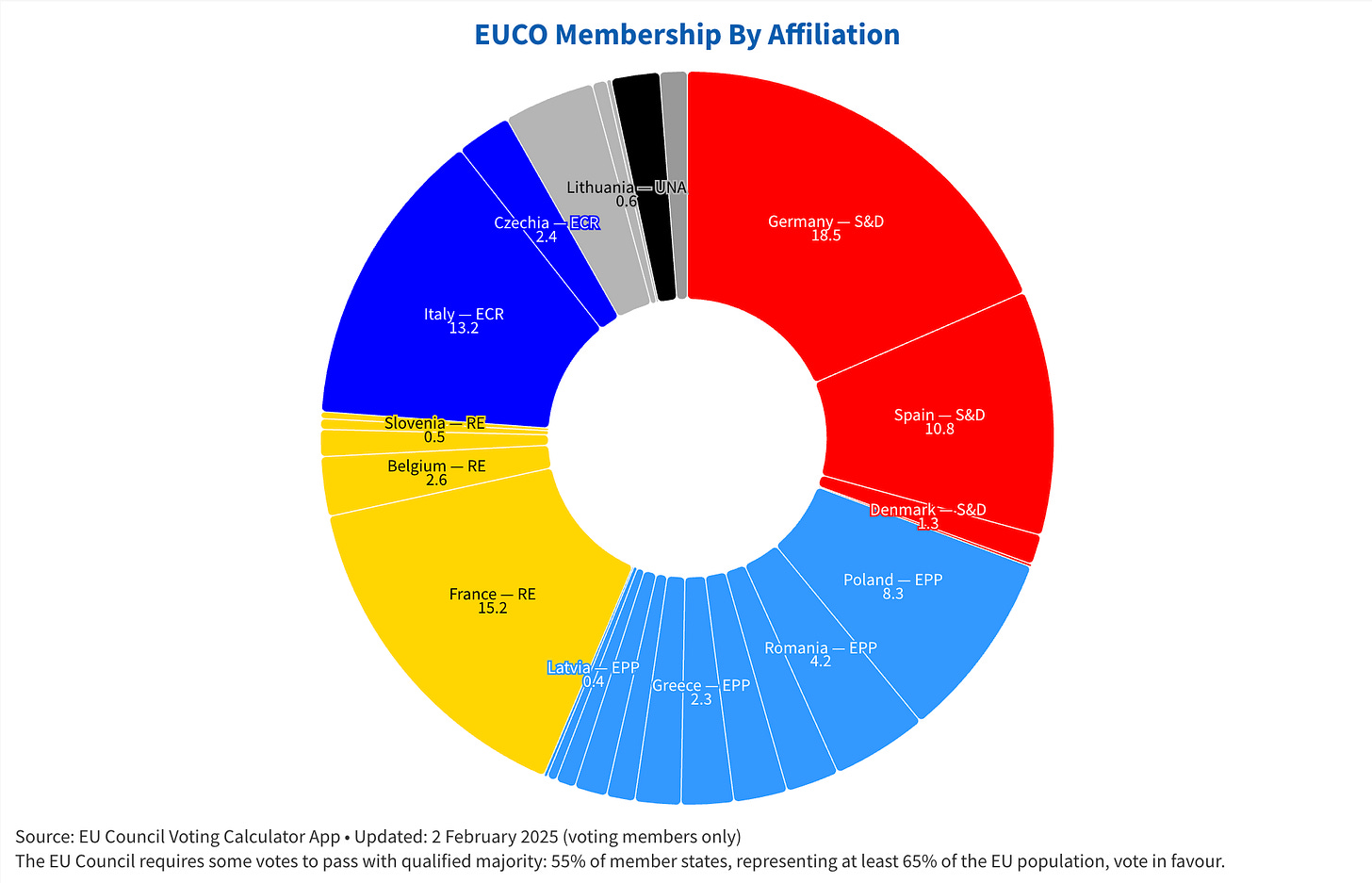Looks like we’ve finally had a slow electoral month. Too bad it isn’t going to last. Germany and Kosovo both head to the polls in February, while protests in Serbia might lead to new elections. So, this edition will be a light appetizer ahead of next month's hearty entree. But first, if you’d like to encourage others to subscribe, please use this link:
Truth in Polling Project
Europe Elects: Truth in Polling (EETIP) is a publicly available database of pollsters in each European country, assessing essential information related to their activities. With this project, we aim to promote transparency in the polling industry, as well as deepen dialogue with political pollsters in countries of the European Political Community with the goal of reviewing their work collaboratively with them.
This project is supported by the European Media and Information Fund
Learn more here.
All-Elects Fundraiser (2024-2025)
Last year, we as Europe Elects launched a fundraiser to ensure the continuation of our mission: providing accurate and accessible polling data to empower European citizens and support democracy. This year, the stakes are even higher, as we are asking for your support in maintaining not only Europe Elects, but all of our other branches: Africa Elects, America Elects, Asia Elects and Oceania Elects.
Every donation, no matter the size, is an investment in democracy and the future of free, accessible information.
Croatia Election Aftermath
Incumbent Croatian president Zoran Milanović defeated Dragan Primorac in the second round of that country’s presidential election on 12 January — although defeated might be putting it a little too politely. Milanović garnered almost 75% of the vote after barely failing to win the election outright in the first round. His victory is unwelcome news to the Croatian Democratic Union (HDZ-EPP) and Prime Minister Andrej Plenković (HDZ-EPP). According to the BBC, “[Plenković] declined to congratulate the winner and insisted that ‘Milanovic offers nothing’.” The two are political rivals, and Milanović overwhelming victory might indicate a growing public frustration with HDZ. The party has slowly but steadily seen its public support decline since returning to power after the 2016 parliament elections. HDZ won roughly 37% of the vote that year — today, our average has them at 32%.
European Parliament (EP) seats projection
It’s been a little over two months since the 2024 European Elections — so clearly, it’s time to look toward the next one in 2029.
The latest projection can be found here.
EPP: 177 (-11)
S&D: 131 (-5)
PfE: 104 (+20)
ECR: 81 (+3)
RE: 85 (+8)
G/EFA: 36 (-17)
LEFT: 49 (+4)
NI: 22 (-10)
ESN: 29 (+4)
Unaffiliated: 6 (+6)
+/- vs. 2024 EU Parliamentary Elections
European Council (EUCO) tracking + Other European Heads of State
Europe Elects does not limit its coverage of EU politics to the European Parliament. Being composed of 27 political leaders from the entire continent, the European Council is an entity shaping the political priorities of the Union.
The Council’s composition changes much more frequently than the Parliament’s—and thanks to our coverage, you can see the timeline of those dynamic shifts at any moment here.
Below, you can see the European Council's current composition, as well as its membership weighted by population.
Notable Updates
Bulgaria finally has a government. Citizens for European Development of Bulgaria (GERB-EPP) is back at the country’s helm, and for the first time in its history, the party’s prime minister is not the controversial Boyko Borisov.
Ireland’s new government was officially sworn in this month, while Belgium’s various political parties have reached a government formation agreement (at long last). We’ll have more in next month’s edition after the new government is installed. In Austria, government negotiations led by the centre-right Austrian People’s Party (ÖVP-EPP) have collapsed, and the right-wing Freedom Party of Austria (FPÖ-PfE) has been given a new mandate.
Norway and Serbia also saw big changes in January. In Norway, the governing coalition broke apart over how closely to align the country’s energy policy with the EU. The centre eurosceptic Centre Party (Sp~RE) pulled out of the ruling cabinet, leaving the centre-left Labour Party (Ap-S&D) to govern alone as a minority government until elections later this year. Meanwhile, Serbia may be heading to early elections after Miloš Vučević of the centre-right Serbian Progressive Party (SNS-EPP) resigned as prime minister in response to mass protests that have gripped the country following the deadly collapse of a train station overhang in Novi Sad in November. Protestors allege that the disaster was in part caused by official negligence and corruption, and have argued that authorities are failing to hold those responsible accountable.
Electoral Calendar 2025/2026
Do you want to be sure not to miss any major election coming up?
Europe Elects doesn’t want you to either! Check out our publicly available electoral calendar for the upcoming year.
https://europeelects.eu/calendar/
Some Upcoming elections
Kosovo (National Parliament): 9 February
Liechtenstein (National Parliament): 9 February
Germany (National Parliament): 23 February
Polling Highlights
Want to stay informed about any polls published across the continent? Check out Europe Elects' Polling average to keep up with all the latest polls.
Croatia: the right-wing Homeland Movement (DP~ECR), currently in national government with Croatian Democratic Union (HDZ-EPP), falls to an all-time record low polling result of 1.8% in the latest Ipsos poll - the lowest polling result ever obtained by a party founded in 2020. If repeated in the next national parliament election, this would be the party’s worst result ever.
Czechia: right-wing Motorists for themselves (Auto-PfE) reaches an all-time record high with 7.0% in the latest Median poll. If repeated in a national parliament election, the party would gain parliamentary representation for the first time. In June 2024, the party gained representation in the European Parliament with 10.3% in an electoral alliance with Oath – Robert Šlachta’s Civic Movement (Přísaha-PfE)
Denmark: Citizens’ Party (H-NI) appears in a poll for the first time, with 1.0% in the latest Voxmeter poll.
Estonia: the liberal Estonia 200 (E200→EPP) reaches a record low with 1.9% in the latest Norstat poll—the lowest polling result ever obtained by the party. If repeated in the next national parliament election, this would be the party’s worst result ever.
Netherlands: centre-right New Social Contract of Pieter Omtzigt (NSC-EPP) reaches a record low at 1.8% of the vote, in the latest Verian poll. NSC was founded in late August 2023 and was the country's largest party around 19% in Europe Elects' polling average as late as October 2023.
UK: Keir Starmer's governing centre-left Labour Party (LAB-S&D) fell to 22% in the most recent Find Out Now poll. This is the party's worst poll result since October 2019. Nigel Farage's right-wing Reform UK (REFORM~NI) has reached 26% in the same poll, the party's highest result since June 2019, when it was known as the Brexit Party. This is also the first time the party has led in a poll in the same period.
Latest Podcast and Articles
We love feedback
Let us know how we’re doing or if you have any suggestions for how we can improve the newsletter.








